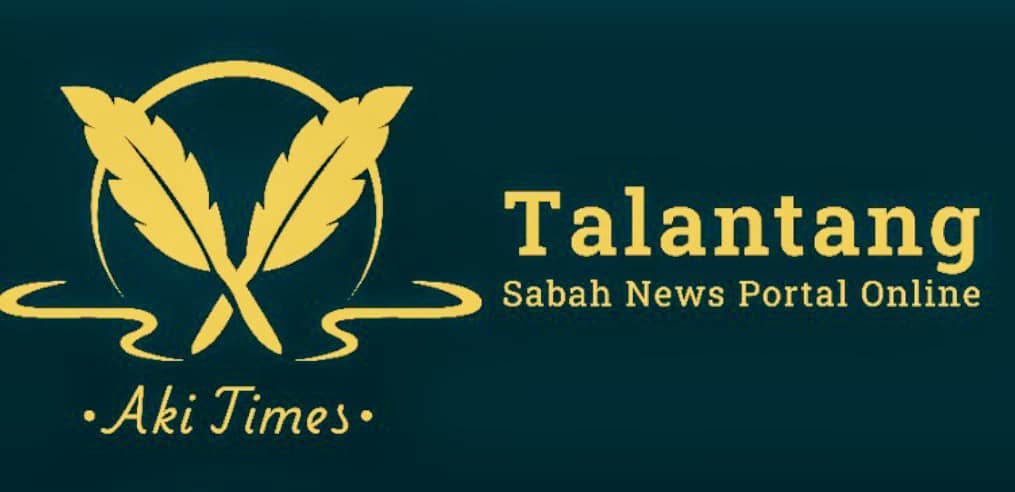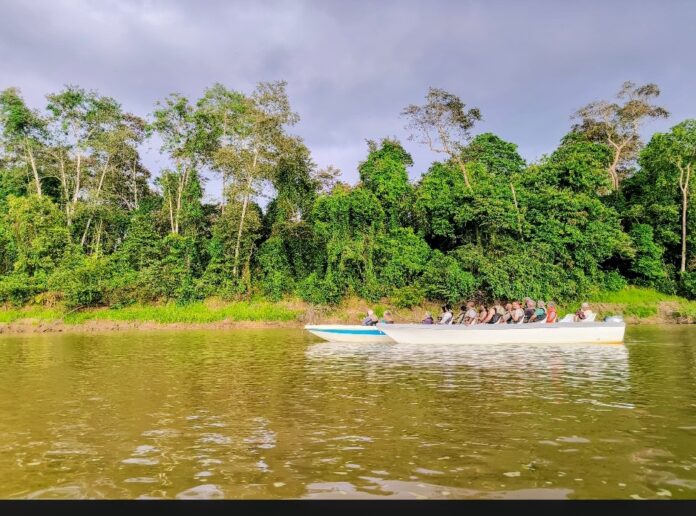The Kinabatangan River has been a popular attraction among international tourists, especially for its river cruise service and its lodges near the Sukau area.
Through the planting of a special grass, conservationists hope to attract the endangered animals away from villages and crops, reducing conflict with human.
KINABATANGAN – For Alexander Yee, being a player in Sabah’s tourism industry is more than just business.
The president of the Kinabatangan Corridor of Life Tourism Operators Association (KiTA) and operator of the Nature Lodge Kinabatangan at Kg Bilit decided to give back to wildlife conservation instead of merely “taking” from it for tourism purposes.
Yee, who has been in the tourism industry for over 35 years, including in Australia, the United States and Singapore, is now on a new project to revive the pygmy elephant population in Sabah by planting their food in the lower Kinabatangan region.
“While wildlife watching is part of my business, I have, as far back as 2005, realised that our environment is fragile and many of our wildlife species are facing the threat of extinction.
“Wildlife is part of the natural environment that we are living in. Wildlife and humans are all part of it together
“That is why I spend a considerable amount of my time doing conservation or conservation-related works. I hope that I will leave behind a better Sabah than the one I have inherited,” he told Scoop.
The Sabah Wildlife Department estimates that there are no more than 1,000 to 1,500 pygmy elephants in the whole of Sabah. In Kinabatangan, there were around 200 of them in the late nineties.
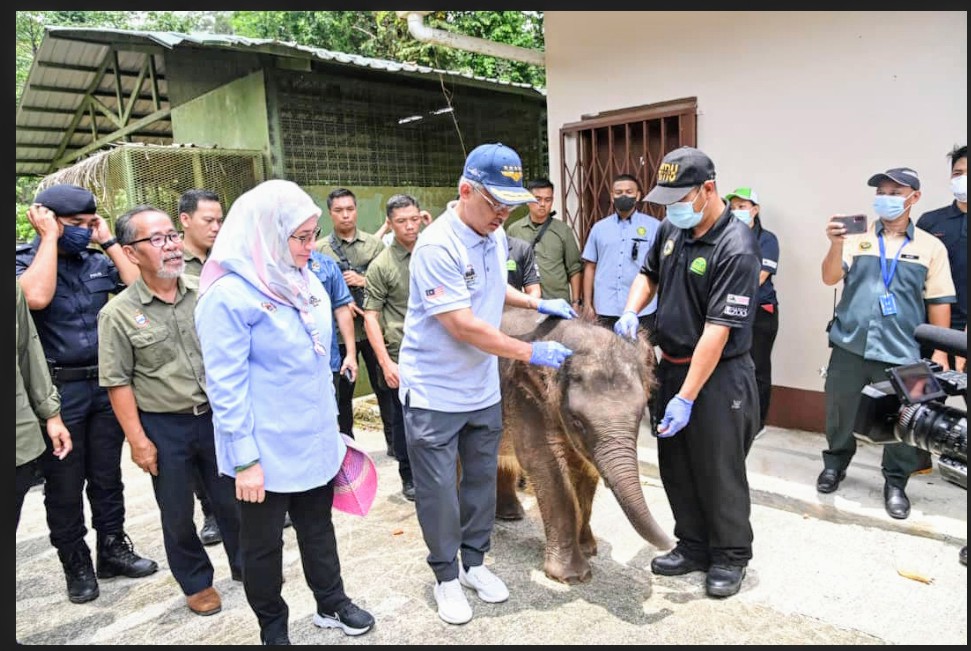
The 16th Yang di-Pertuan Agong Al-Sulltan Abdullah Ri’ayatuddin Al-Mustafa Billah Shah and Raja Permaisuri Agong Tunku Azizah Aminah Maimunah Iskandariah met a Borneoan pygmy at the Sepilok Orangutan Rehabilitation Centre during their trip to East Malaysia in September 2023. – Istana Negara Facebook pic.
No accurate figure is currently available on the actual size of the Kinabatangan elephant population, but the increase in elephant deaths recorded over the years has corresponded with a noticeable decline in sightings of the elephant population in the lower Kinabatangan.
Moved to action
Yee said the increase in the number of media reports on human-elephant conflict prompted him to finally launch his long-held idea of planting food for pygmy elephants.
One report that moved him was of a Borneo Pygmy elephant that entered the compound of a secondary school in Telupid and wandered around the school’s dining hall.
After that incident, Yee and several like-minded individuals formed the Responsible Elephant Conservation Trust (Respect).
As chairman of Respect, Yee’s vision is to plant a food corridor with Napier grass (Pennisetum purpureum) for pygmy elephants, to attract them away from villages and crops, thus preventing or at least reducing the number of human-elephant conflicts.
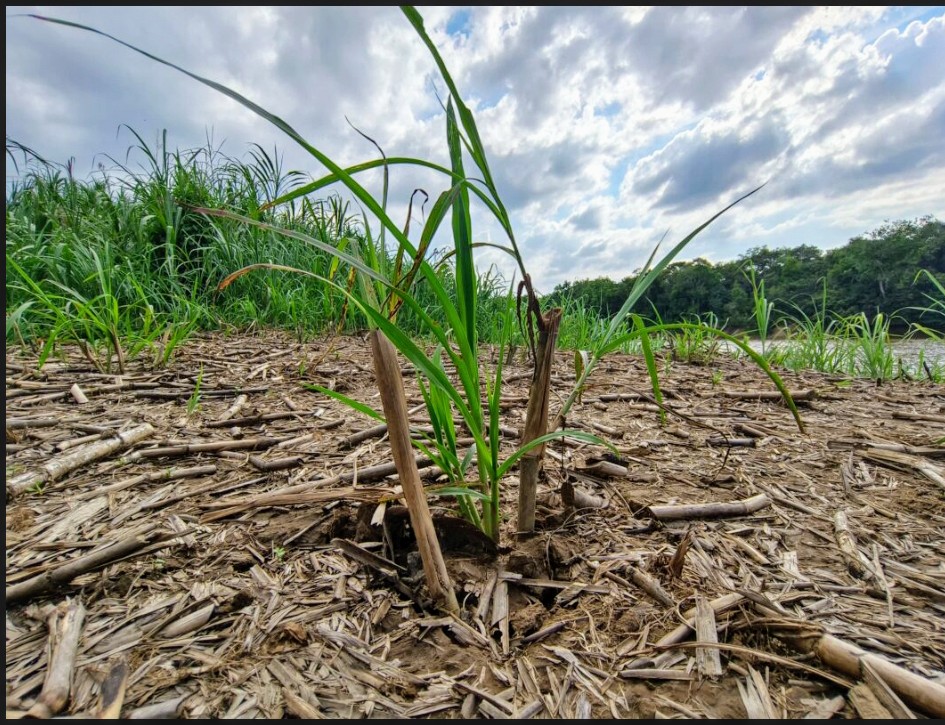
The Napier grass planted in Kinabatangan last month as part of the food corridor that will eventually reach a height of five to six feet in another three to five months. They are expected to attract the Borneo pygmy elephants of the area.
Borneo Rhino Alliance executive director and Respect trustee Datuk John Payne has successfully held a pilot project in Tabin, a wildlife reserve near the Kinabatangan area.
Great news came at the end of 2022, when Intrepid Foundation, the non-profit arm of global travel company Intrepid Travel, said it would fund the initial stage of the Napier grass-planting project in Kinabatangan.
“Intrepid Foundation’s support, both in raising awareness and providing essential funding for the establishment of a food corridor for the pygmy elephants, is invaluable.”
Thanks to the funding, the food corridor project began last month with the planting of Napier grass on a one acre plot that Yee owns, next to the Kinabatangan Nature Lodge, which is in Sukau, about 132 km from Sandakan.
Planting was also done at a 100m stretch of riparian land belonging to the state government along the riverbank of the Kinabatangan River.
“We are filling this land with Napier grass, which elephants love, as well as placing several mineral blocks to ensure that these elephants would get the nutrients that they need.
“If this goes well, we will be continuing this project by extending planting to another 100m stretch of the riparian land, and so on, depending on the funding that we receive.
“Within four to six months, the grass should reach a height of five to six feet. It will then be the ‘moment of truth’ when a herd of elephants visit and stay to eat the grass.
“When this happens, I can safely say that the work is validated,” Yee said.
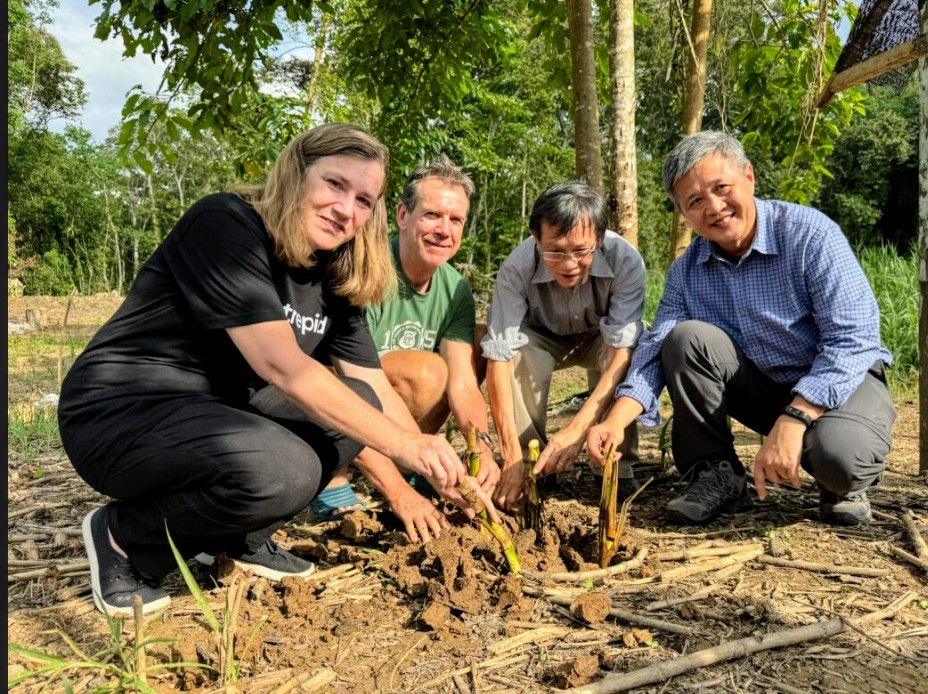
Responsible Elephant Conservation Trust’s (Respect) chairman Alexander Yee (right) and trustee Fong Min San (second from right), planting Napier grass with Intrepid Travel’s managing director for Asia, Natalie Kidd (left), and chief operating officer Tom Beadle (second from left).
Planting for the future
On May 4, Intrepid Travel’s managing director for Asia, Natalie Kidd, chief operating officer Tom Beadle, and general manager for Malaysia Falice Tseu visited the site. Also present was Respect’s trustee, Fong Min San.
“Projects like this take time to prove their success. But this is such an iconic area for Sabah, and also for the tourism sector. So, we feel the need to protect nature, and also to protect the local community by avoiding human-wildlife conflict.
“I am excited to return here in six months to see how it will transform then. This makes it real. We need to give it time and continue investing in it,” said Kidd.
Yee said the highly populated area of Abai is some 47 km from the mouth of the Kinabatangan River, and he hoped the Napier grass corridor will be able to attract elephants away from human settlements and crops there.
Before Yee’s project in Kinabatangan, Sabah Tourism, Culture and Environment Minister Datuk Christina Liew had mooted the idea of initiating a food corridor for the pygmy elephants in the Lower Kinabatangan area.
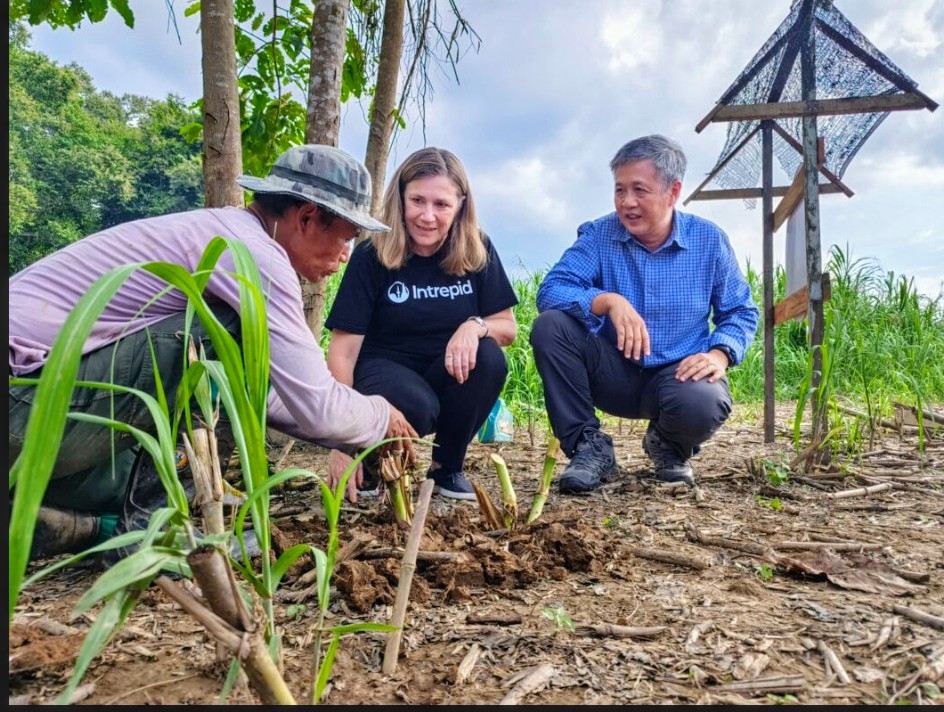
Natalie Kidd (centre) said she was happy to finally see the project funded by the Intrepid Foundation in Kinabatangan start to come to fruition.
In Sabah, the Borneo Pygmy elephant is categorised as “totally protected” under Schedule 1 of the Wildlife Conservation Enactment (WCE) 1997, which prohibits hunting or shooting of the species under any circumstances.
Killing an elephant or possessing elephant products (such as the skull, skin, bones, and tusks) is an offence under section 25 of the WCE 1997, which carries a fine of between RM50,000 and RM250,000, and imprisonment of six months to five years, upon conviction.
Editor: This article by Rebecca Chong has appeared in The Scoop.
